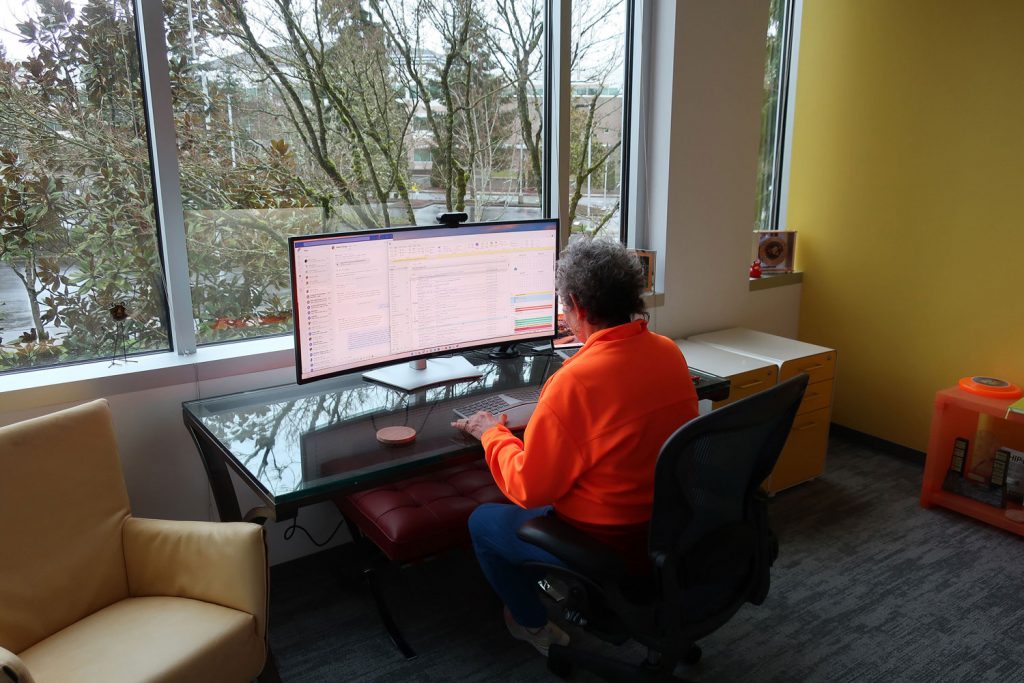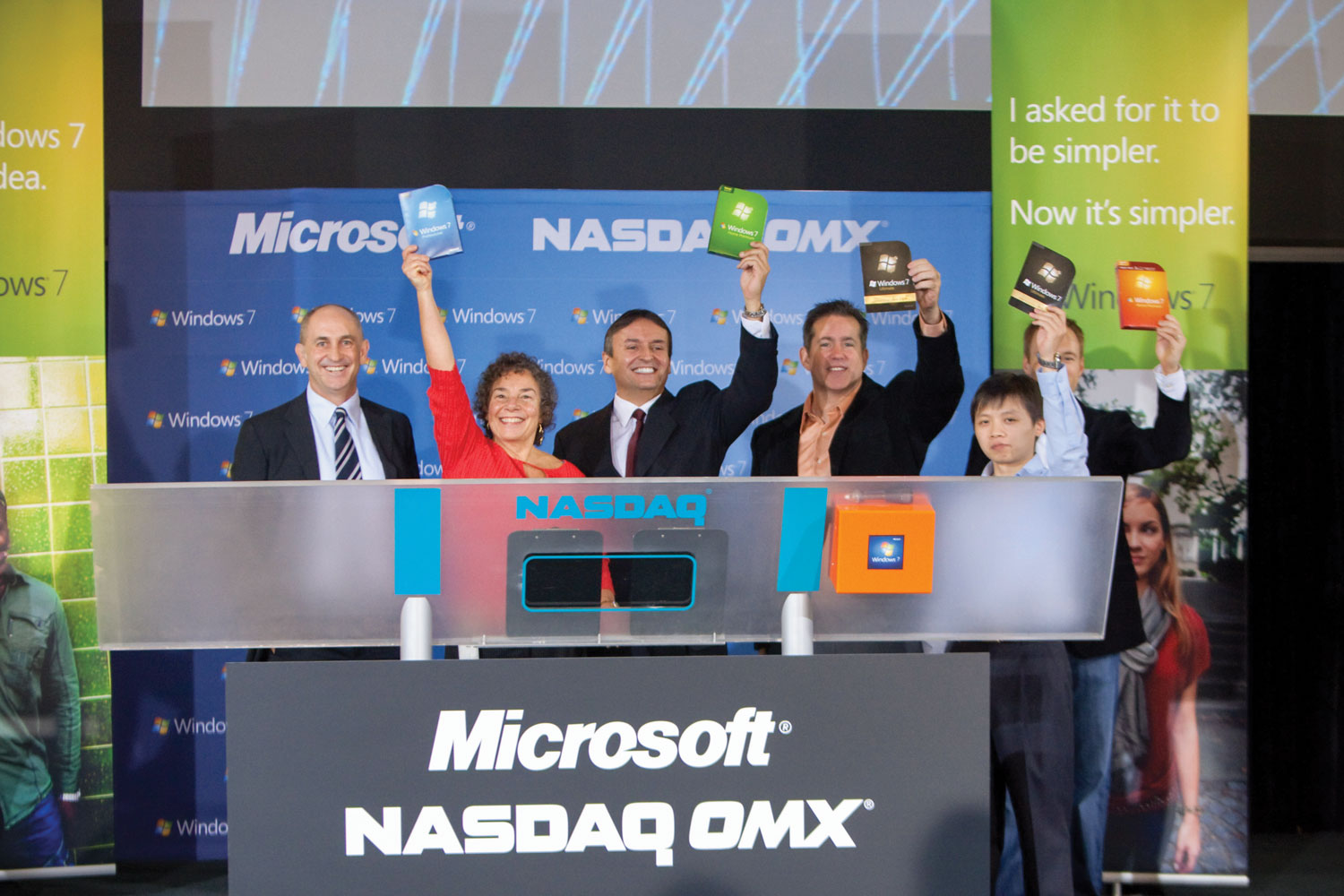Linda Averett thrives on change and innovation, which is why she’s made her career on the cutting edge of computing.
She is Microsoft’s corporate vice president for ImPaCT (Infrastructure for Privacy, Compliance, and Trust). She’s also responsible for Microsoft’s educational effort in schools. During her 28 years at the company, she’s helped develop popular operating systems, including Windows 7, 8, 10, and 11.
“We set up ImPaCT because of the emergence of AI (artificial intelligence) and the big effect that it has on people’s privacy and their comfort in using computers. And also because the requirements for operating systems around the world related to data—how it’s stored, managed, etc.— is at an all-time high.”

Averett said ImPaCT aims to establish “guardrails” that make AI safer for youngsters and less daunting for the average computer user. In education, the goal is to integrate AI so learning is personalized to each student.
“AI has been around since the 1970s,” she said, explaining that anyone who has played a computer game or used Bing Chat or Google Bard has already engaged with the technology. “But we’re seeing a change in how people are using it and the way it can be used.”
While some people fear AI, Averett believes AI could transform education, healthcare, and other fields. It could very well bring about a new industrial revolution.
“It will be a paradigm shift equal to television or mobile phones,” she said.
Averett, who now lives near Seattle, was born in Knoxville and raised in Bristol, Tennessee. She said her father, an electrical engineer who attended UT on the GI Bill, always encouraged her to “find ways to make a difference.”

She graduated from Tickle College of Engineering with a bachelor’s degree in engineering physics, a major that no longer exists.
“Engineering physics specializes in problem-solving,” she said, adding that it gave her the perfect tools for her career. “I make products. I invent them. To do that, you have to come up with a concept and then explain how it adds value to the customer and the business.”
Averett said the lessons she learned at UT went well beyond what she gleaned from textbooks and lectures.
One of just a handful of women in engineering physics in the late 1960s, she didn’t try to fly below the radar. Shesaid she’s always been outgoing, talkative, and energetic.
“I learned to not take it personally when people wouldn’t talk to me,” she said. “It wasn’t that they didn’t like me, it was that I was different from everyone else.”
Also, she said, “I learned how to take my seat at the table—even though I was almost always the only girl.”

Averett met her husband, Ed (BS/EE ’70, MS/EE ’71), in a sophomore calculus class. They got engaged their junior year on a park bench outside Presidential Complex residence halls, where they both lived. They married the day after Linda graduated.
Averett then spent 10 years developing real-time operating systems, primarily at Hewlett Packard, before joining Microsoft.
The Averetts also started their own independent game development company, which eventually produced the games for the Magnavox Odyssey gaming unit.
“I’m not a gamer. I did the logic that made things move around the screen. We were actually a great team,” she said. “It was fun, and it gave me my first real exposure to consumers using computerlike products.
“I love the computer field because the tech changes every 10 years,” she said. “It’s never boring. It’s always new and exciting.”
